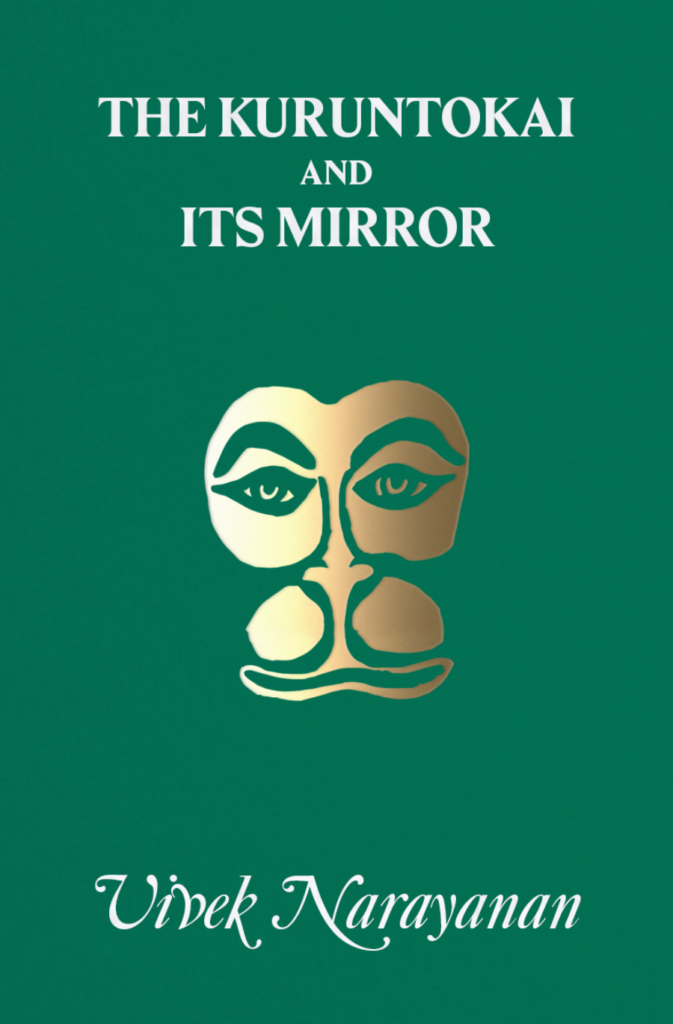Vivek Narayanan: The Kuruntokai and Its Mirror
Vivek Narayanan’s The Kuruntokai and Its Mirror is a fractalized translation and reinterpretation of a classical work in the Tamil Sangam canon, an anthology of 401 short poems composed between 100 CE and 300 CE. As Narayanan writes, the poems “explore in excruciating detail the relationship between the interior and the exterior, the personal and the public” to reflect on the facture of poetry itself.
The influence of The Kuruntokai on Tamil culture and more broadly has been vast but webbed; the poems’ inherent eroticism and expressive range has complicated their history of open dissemination, surfacing most prominently in the English-speaking world through a formally liberal, or “Poundian,” translation by A. K. Ramanujan in the late 1960s, the era that likewise gave birth to the Hanuman Books avant-garde. For our contemporary moment, Narayanan provides a close experience and elaboration of The Kuruntokai. His bilingual edition, with text in Tamil and in English, highlights the book’s obliquities, its rich tapestry of internal rhyme in the “dance of the akaval metre,” its poems that “wink” mysteriously to themselves. Raw and fresh, minimalistic and intensive, Narayanan’s The Kuruntokai and Its Mirror romances the ancient amid the exigencies of modern life.

